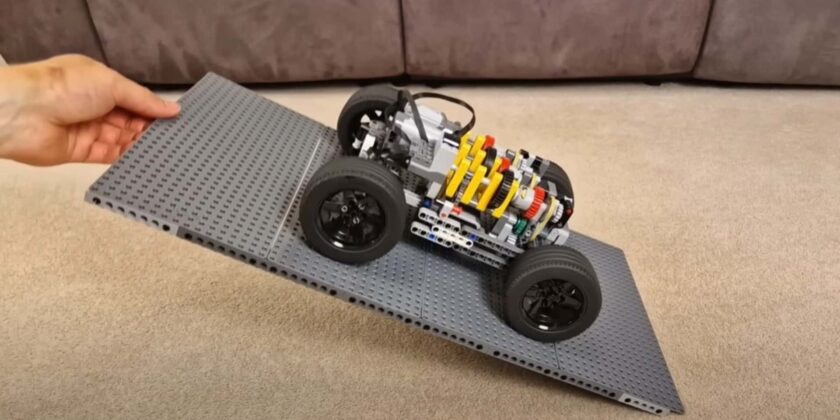A continuously variable transmission, or CVT, is a type of automatic transmission with a continuous range of gear ratios. Using a belt and pulley system instead of traditional gears, the CVT provides several benefits, including smoother acceleration and improved fuel efficiency. They are also interesting to watch in action, as shown in this video on Banana Gear Studio’s YouTube channel.
Starting with a basic design, the video shows how an automatic transmission operates. It’s not as sophisticated as the CVTs in cars made by Honda, Nissan, and Subaru, but it shows how an automatic transmission’s pullies slip as load torque increases. This load torque increase also increases the gear ratio, leading to more output torque.
In other words, the more resistance encountered from weight or going up a hill, the higher the gear ratio required to overcome that resistance. That’s why a vehicle shifts into a gear with a higher ratio to get moving, climb a steep hill, or accelerate while moving.
This concept is demonstrated in the video by first lifting increasing heavier weights with a rope and pulley and then by building a car with a functioning CVT. As the car moves freely along the carpet, it operates in a lower gear ratio. When it climbs a steep incline or has to push a heavy object, the gear ratio increases, so the car continues making forward progress.
There is something cool about using Legos to show how things work. We’ve seen people build a working five-speed transmission and a Lego hot rod with a four-speed gearbox. Then, there’s a video showing how four-wheel steering allows vehicles to park in tight spaces. These videos are fascinating because they not only explain things visually but reveal something about the builder’s creativity.
As for CVTs, they are not just used in cars but vehicles like tractors, all-terrain vehicles, motor scooters, snowmobiles, and even earthmoving equipment. Electric variable transmissions are also used in hybrids like the Toyota Prius, Mitsubishi Outlander PHEV, and Ford Escape Hybrid to manage the power between the electric motor and internal combustion engine.
Source: Read Full Article
